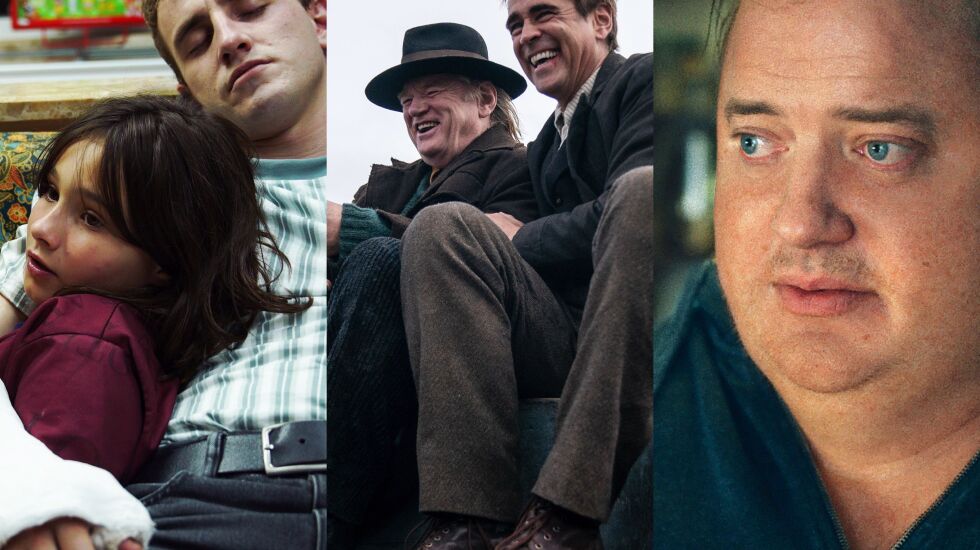
We kick off our annual “Best Movies of the Year” tribute with the long and impressive list of films that fell short of making the cut but are well worth your time, and this year’s group is one of the strongest in recent memory, including:
“Avatar: The Way of Water,” “Violent Night,” “The Menu,” “Spirited,” “Black Panther: Wakanda Forever,” “Causeway,” “Women Talking,” “All Quiet on the Western Front,” “The Good Nurse,” “Raymond & Ray,” “Till,” “Confess, Fletch,” “The Woman King,” “Clerks III,” “The Good Boss,” “Breaking,” “Bodies, Bodies, Bodies,” “Prey,” “Bullet Train,” “Thirteen Lives,” “Vengeance,” “Elvis,” “Cha Cha Real Smooth,” “Relative,” “18 ½,” “Hustle,” “Hollywood Stargirl,” “Top Gun: Maverick,” “Emergency,” “The Northman,” “The Adam Project,” “After Yang,” “Cyrano,” “Kimi,” “Jockey,” “Scream.”
That’s enough for three more Top 10 lists — but as always, difficult choices have to be made, and when the final credits rolled on the 2022 movie year, these are the films that made the biggest impact on me.
10. ‘The Fabelmans’
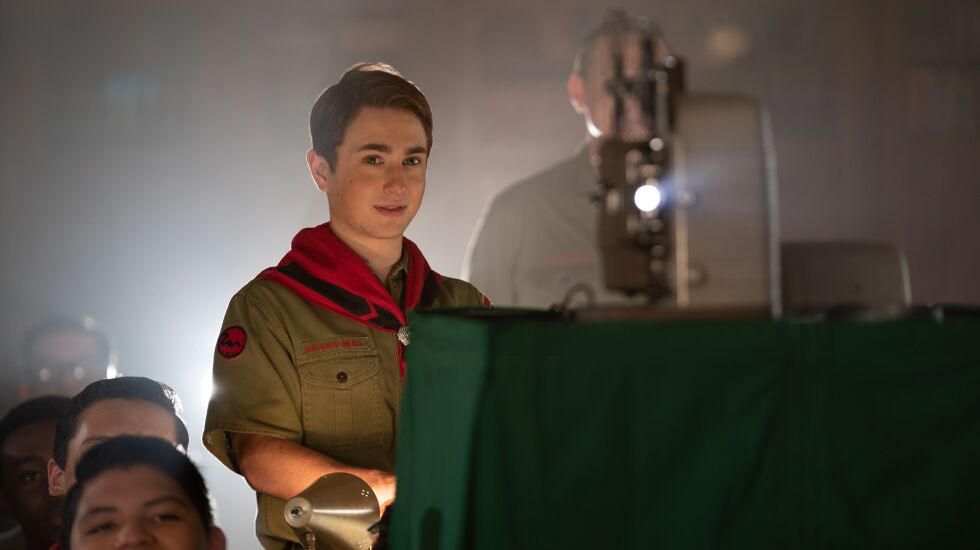
The master himself, Steven Spielberg, has talked often about how his love of movies was solidified by the sometimes bumpy road of his adolescence, and he channeled those experiences to great effect in his most personal film ever. With Gabriel LaBelle as the Spielbergian doppelganger Sammy Fabelman (what a last name!), who dreams of becoming a filmmaker, and a wonderful supporting cast including Paul Dano and Michelle Williams as Sammy’s mismatched parents, Seth Rogen doing fine dramatic work as “Uncle” Bennie and Judd Hirsch in a show-stopping cameo, “The Fabelmans” is a sprawling American family epic made by one of the great American filmmakers of all time.
9. ‘The Black Phone’
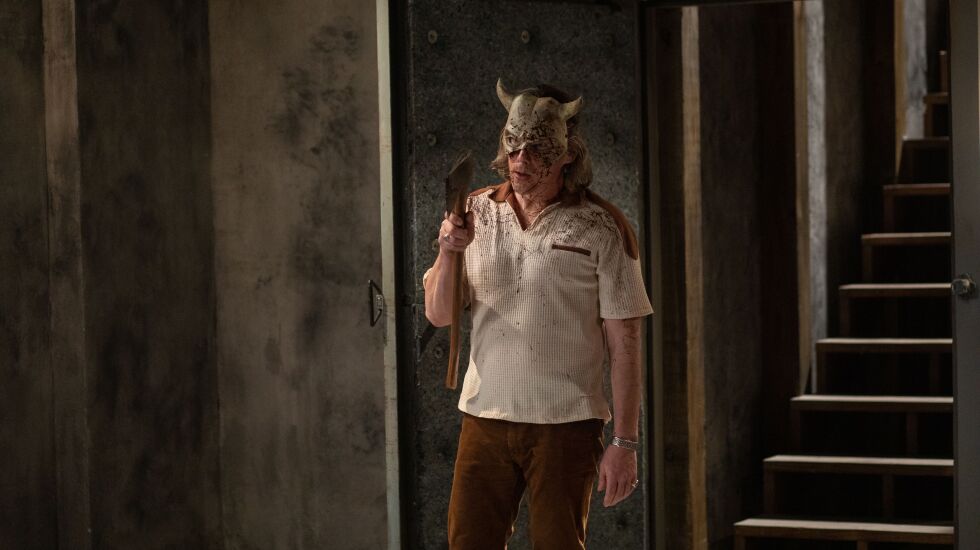
I love that Scott Derrickson’s stylish, bare-bones horror work is set in 1978 — the same year one Michael Myers went on a killing spree in Haddonfield, Illinois, and just a couple of years before Jason Voorhees went on a rampage at Camp Crystal Lake. Based on a short story by Joe Hill (look up a photo of Joe and you’ll instantly recognize he’s the son of Stephen King), “The Black Phone” expertly captures the time period and the slasher-movie vibe as kids in a North Denver neighborhood begin disappearing at an alarming rate, even as the urban legend (or is it an urban legend?) grows about a masked killer named The Grabber. Ethan Hawke continues his spectacular mid-career run in a rare villainous role.
8. ‘Tár’
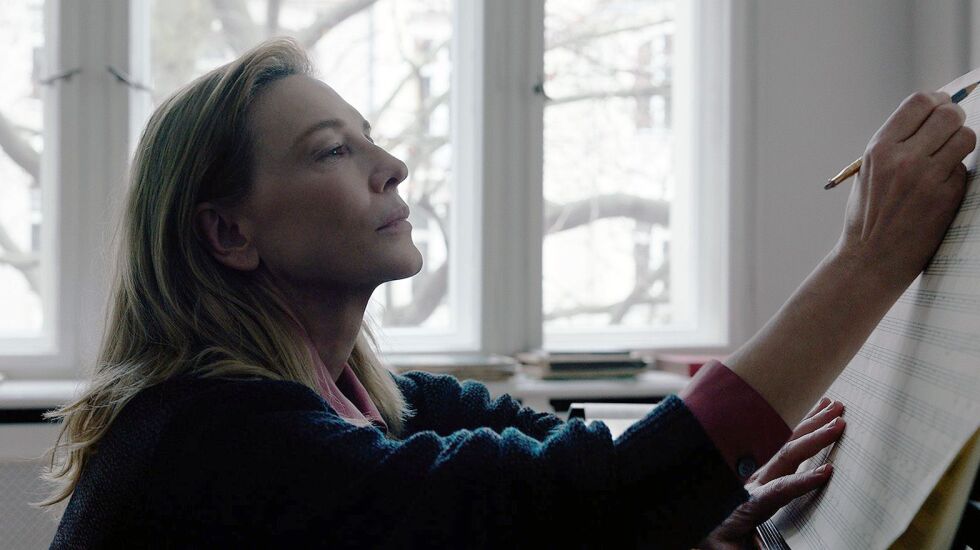
Cate Blanchett soars and is sure to get an Oscar nomination (and most likely a win) as the title character, one Lydia Tár, an enormously talented and deeply troubled composer/conductor who at times is more intimidating than The Grabber as she psychologically slices and dices anyone who gets in the way of her voracious appetite for attaining iconic status in her field. As Lydia’s life spirals out of control — due to controversies, scandals and wrongdoings by her own hand — one begins to wonder if what we’re seeing in the last act is a literal representation of her life, or something more akin to Natalie Portman’s breakdown in “Black Swan.” Either way, writer-director Todd Field and Blanchett have teamed up to create a masterful and original work.
7. ‘Emily the Criminal’
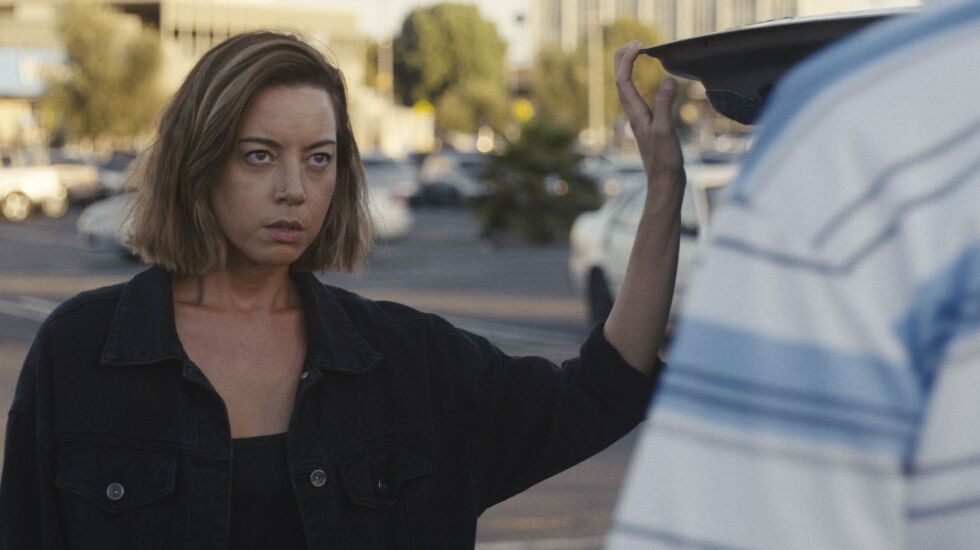
What a year for Aubrey Plaza, from her show-stopping work in Season Two of “The White Lotus” to a small but wildly entertaining part in “Spin Me Round” to her career-best performance in John Patton Ford’s edgy and tightly spun neo-thriller, which is set in present day but has a 1970s indie-movie vibe. Plaza’s debt-riddled Emily makes the fateful decision to get involved in a widespread operation involving stolen credit cards and fake ID’s, leading to a Bonnie-and-Clyde type romance with her “boss” Youcef (Theo Rossi, also fantastic) and some harrowing encounters that could mean the end of Emily — or a chance at a fresh start. Writer-director Ford delivers the goods right up to the very last frame.
6. ‘Pearl’ and ‘X’
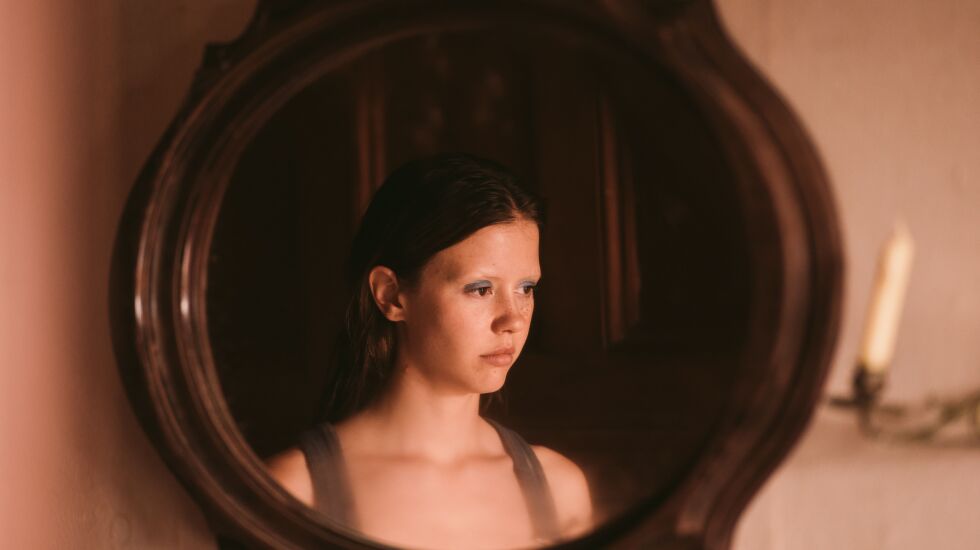
Writer-director-producer Ti West created an instantly iconic franchise with the release of “X,” an homage to “The Texas Chainsaw Massacre” set in the late 1970s, and the prequel, “Pearl,” which takes place some 50 years earlier and tells the origin story of the title character (Mia Goth, who plays Pearl in both movies and also plays lead character Max in “X” and is great in all three performances). Both films are gory, darkly funny and splattered with grisly surprises. The good news is, West isn’t quite finished, as he’s working on the third film in the trilogy, a sequel to “X” titled “MaXXXine.”
5. ‘To Leslie’
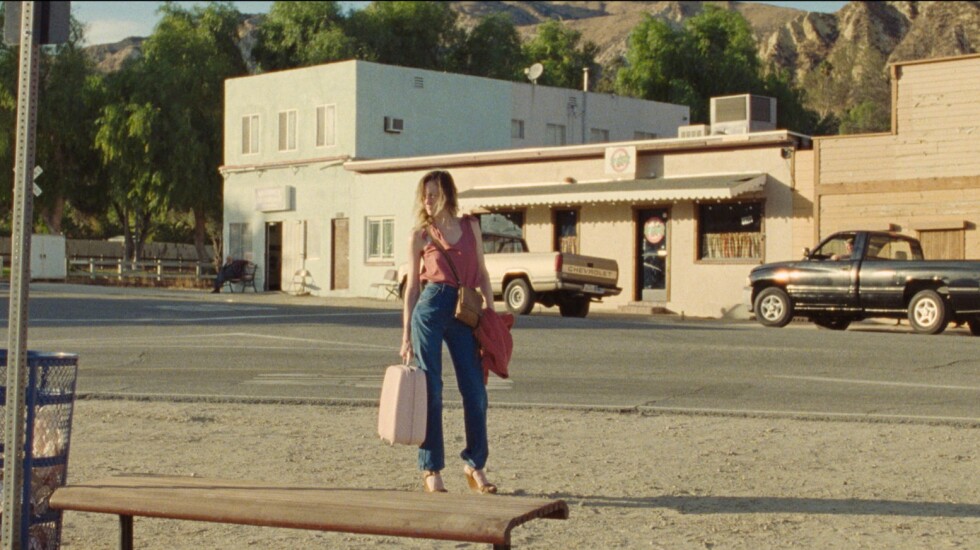
As much as I admired Blanchett’s work in “Tár,” my favorite performance by a woman this year was delivered by the chameleonlike Andrea Riseborough in director Michael Morris’ searing drama about a mom at the final crossroads in her life after she’s lost everything due to her drinking. With an insightful script by Ryan Binaco and fine supporting work by Marc Maron, Andre Royo, Allison Janney and Stephen Root, “To Leslie” ranks with “Leaving Las Vegas” and “Crazy Heart” as modern-day classics about the ravages of alcoholism.
4. ‘Nope’
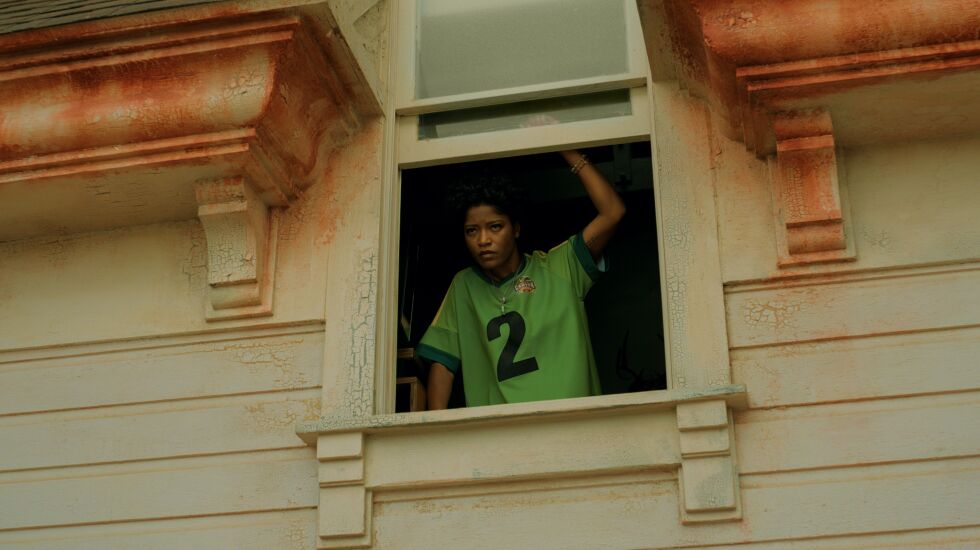
Jordan Peele does it again in a bold and funny and outlandish sci-fi horror fable that pays homage to such films as “Close Encounters of the Third Kind,” “Pulp Fiction,” “Signs” and “Poltergeist,” and yet maintains an original voice throughout. Daniel Kaluuya continues his run of great work as OJ Haywood, who runs the only Black-owned horse ranch in Hollywood, and Keke Palmer merits best supporting actress consideration as his younger sister Emerald, who teams up with her sibling to defend themselves against … something in the skies above.
3. ‘Aftersun’
No doubt the catering budget on “The Way of Water” was bigger than the entire cost of this small and seemingly uncomplicated diamond from the Scottish writer-director Charlotte Wells. Set in the summer of 1999, “Aftersun” chronicles a pivotal summer vacation in the life of 11-year-old Sophie (Frankie Corio) and her father Calumn (Paul Mescal), who is alternately the best time ever and disturbingly quiet and removed. Little by little, the script fills in small details, creating an emotional build that will touch your heart in a way few films can.
2. ‘The Banshees of Inisherin’
You’re feckin’ right this is one of the best movies in recent memory, with the great tandem of Brendan Gleeson and Colin Farrell reuniting with their “In Bruges” writer-director Martin McDonagh for another pitch-black comedy-drama about two unlikely friends who just might be the end of each other. Set on a fictional island off the west coast of Ireland in 1923, “Banshees” manages to be one of the bleakest and yet one of the funniest films of the year. Here’s hoping Gleeson, Farrell and McDonagh don’t wait another 14 years before teaming up again.
1. ‘The Whale’
Darren Aronofsky’s grand and eloquent metaphor is the kind of polarizing and ambitious cinematic gesture that will land on some “Best of” lists — and some “Worst of” lists as well. Based on the moving and wholly original stage play by Samuel D. Hunter, “The Whale” stars Brendan Fraser in a career-best performance as a 600-pound recluse who sees the end of his life’s journey coming and is OK with that — especially if he can achieve some kind of closure with his estranged teenage daughter (Sadie Sink). “The Whale” is a dark and grand fable filled with poignant dialogue and brilliant performances from Fraser, Sink, Samantha Morton and Hong Chau, and it delivers the most resonant ending of any movie this year.
With the possible exception of “Aftersun.” Or “Nope.” Or “The Banshees of Inisherin.” Or “To Leslie.”







